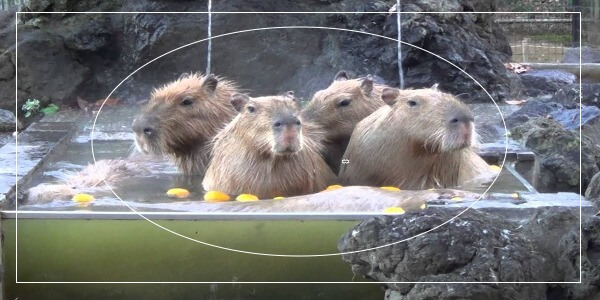Rats, mice, squirrels, gophers, capybara, and many other rodents have constantly troubled and threatened humans for many centuries.
These creatures can cause significant damage to your home, garden, furniture, and property. You can tell you have a rodent or mice in your home if there are holes in your walls or holes in your furniture. In fact, nothing in your home is safe when you have rats around because they can cause a considerable amount of destruction.
Mice can chew your clothes, walls, wood, books, wires, and groceries, and spread diseases by contaminating your food and water sources.
As rats gain entry into your home, they give birth and increase in number. The more their population, the greater the damage and health hazards.
These unwanted visitors are attracted to food sources and can bring diseases into your home. They can take away the warmth and comfort of your home and turn it into an unsafe, unhealthy living environment.
If you understand the threats, damage, and dangers rodents pose, you will do everything to get rid of them. It can be difficult to eliminate rodents from your home if you aren’t armed with the proper tools, knowledge, and information.
You can contact a professional wildlife team to help you as soon as you notice mice on your property. If the rats have caused some damage already, eliminating them is non-negotiable.
It is imperative for you to know that home insurance policies do not cover rats or rodent issues. Insurance companies see rodent damage as preventable. So when homeowners suffer rodent damage, it is their responsibility to pay or take care of it.
In this post, we will look into some of the damages caused by rodents and check out the potential signs of rodent infestation.
What Sort of Damage Do Rodents Cause?
While most rodents are small in size, their damage can be threatening and devastating. The biggest rodent in the world is the capybara. Although they can also cause damage to property they do not infest the home as rats and mice do because they come from the wild.
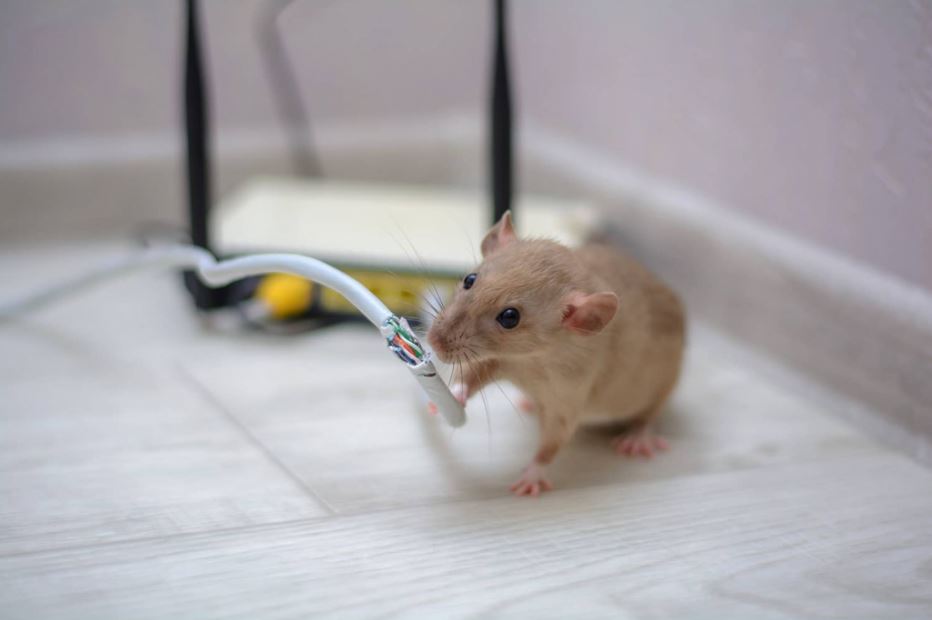
Rats and mice are the most common rodents found in the home. Do not downplay the small size of these rodents because they are destructive. These rodents can destroy things for fun even if they are not hungry.
Rats and mice can cause damage to personal, residential, and commercial properties. They chew and destroy virtually everything in your path from clothes, wood, furniture, paper, books, electrical wires, pipes, walls, food items, etc and nothing is safe around them.
Rodents can cause a considerable amount of damage outside the four walls of the home. They damage landscapes as well as crops and plants in gardens. For instance, ground squirrels and gophers are infamous for feeding on plant roots, causing stunted vegetation and poor harvest.
The most terrible aspect of having rodents around your home is that you and your household are at risk of contracting harmful diseases. Almost all rodents are carriers of dangerous diseases, including leptospirosis, hantavirus, salmonella, Lassa fever, and others, which are infectious.
Having rodents in your home places your entire household and even friends at risk of illnesses and diseases, as they contaminate food and water sources. These unwelcomed creatures can defecate around your home and leave unpleasant odors that will make your home uninhabitable.
Let’s look at the kind of damage rodents can cause.
1. Structural Damage
Mice, rats, and other rodents are sure to cause structural damage to your home. From the first moment they enter your home, they alter and change certain things.
A rodent enters the home when it finds an entry route such as an open door or window. Also, if it finds a small hole, it will squeeze itself in or gnaw on the spot and expand the hole until it is large enough to get it in.
Once they get it, they gnaw on insulation, wood, furniture, and sewer lines, damaging the house foundation in the process.
The aim of a rodent is to source food and create nests. They use torn objects such as nesting materials, causing bigger rodent infestations. Rodents can use any kind of material for their nest. No material is useless for them as they can use cloth, insulation, plastic, wood, and paper.
Although these nests do not directly affect your home’s structure it damages your home from the inside out, putting your home’s integrity at risk.
They chew through your walls, and electrical wiring, leaving droppings and urine around. Their droppings pass a message to other rodents, telling them your home is a safe haven.
You can keep these creatures at bay and prevent further damage by using repellent sprays, snap traps, and closing entry points.
2. Living Areas
Rats and mice can find their way to the attic. Once they get there, they destroy any important material such as papers, documents, or family heirlooms. This post shows you how to get rid of rats in the attic.
Rats are smart animals, they know when to move and when to stay hidden. They don’t always stay in the shadows of their holes; they can share a space in your living room or bedroom without you knowing.
Rats can live under your bed comfortably without you knowing. They know when you are around and can stay quiet as long as they want. They only come out when you are asleep or away.
These rodents create holes in your walls, furniture, couch, mattress, and bed, and create nests in the fluff. They find shelter in such areas and adopt it as their new home in your house. They will leave this spot only to move around your house in search of food and other materials.
They would go to your store or kitchen to gather food, which they take to their hideout to feed their young. Rodents can cause serious damage to your garden. They uproot your plants, and consume the leaves and fruits, causing poor farm yield.
3. Plumbing and Piping
Rats can be a menace for homeowners and landlords, as they destroy the facilities on their property. Almost every modern home features plastic pipes for passing water and other substances in and out of the home.
While these pipes are constructed and fixed for convenience, rats can easily chew and destroy them. Consequently, this causes in-house floods, which can destroy certain areas of your property.
Similarly, rats can cause gas leaks and damage your sewer lines, causing strange smells in your home. They tend to build nests in your HVAC ducts, which alters the condition of your home by polluting the air in your home and making it unsuitable to breathe or stay with their urine, feces, and bacteria.
The unpleasant odors and unhygienic conditions will make your home unfit to stay and unwelcoming to guests.
4. Electrical Damage
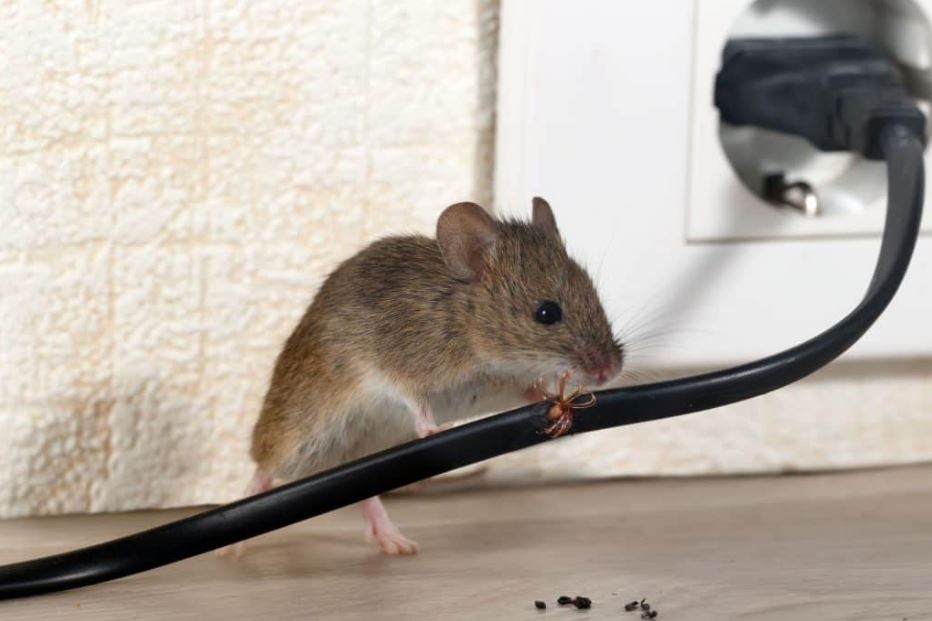
Your electrical wires are unsafe if you have rodents in your home. Rats and mice are notorious for chewing wires. They chew wires and take the material to their nests. Damaged wiring exposes you and your family to several hazards, including electrical fires, short circuits, power outages, injuries, and even death.
Sometimes, the damage to electrical wiring isn’t noticed because the rodents chew wires behind walls and hidden areas. Most times, the damage is known when the damage is severe or has reached the point where it puts the entire house in flames.
You can prevent such casualties by ensuring regular inspection of your home’s electrical system. Once you notice any damage, you will have to redo your electrical work. While redoing your electrical work, consider adopting better preventive measures like installing rodent-proof materials.
5. Food Sources
Rodents do not only come to share a space in your house to cause structural and electrical damage, they also come to feed on your supplies. They will destroy their furniture, clothes, files, paper materials, and household items, searching for food.
They raid your house for food items and gnaw through pantry items such as tissue paper, napkins, paper towels, cereal boxes, beverages, bags of grains, etc.
Unlike capybaras, rats do not have a big appetite. On average, they eat around three grams every day. Rats and mice will touch and destroy everything in their path. They contaminate food supplies by leaving behind their urine and droppings, which come with big health risks.
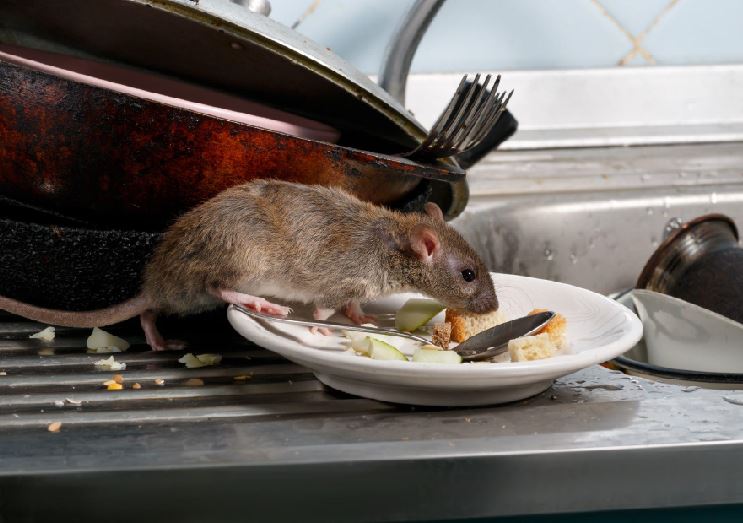
Rats defecate and urinate on almost everything they come across, making it unsafe to eat or use. Rodents carry several diseases, so it is not advisable to eat or feed your pet with any food item they touch.
Once a food item has been opened by a rat, it is unsafe and unhealthy to eat it. It may be impossible to stop rats from raiding your kitchen, especially if you have a lot of food items and supplies.
However, you can reduce the damage by storing your food in airtight containers and keeping your kitchen clean and free from crumbs and spills.
Remember that the state of your kitchen determines the health of your household. You can safeguard and preserve your family’s health by storing your food items and utensils in places where they won’t be contaminated by rodents.
Once you suspect or notice any infestation, consider taking immediate action to remove the rodent. If you can’t handle it, contact a professional pest control company to terminate the rodent and prevent further damage.
What Are The Signs of Rodent Infestation?
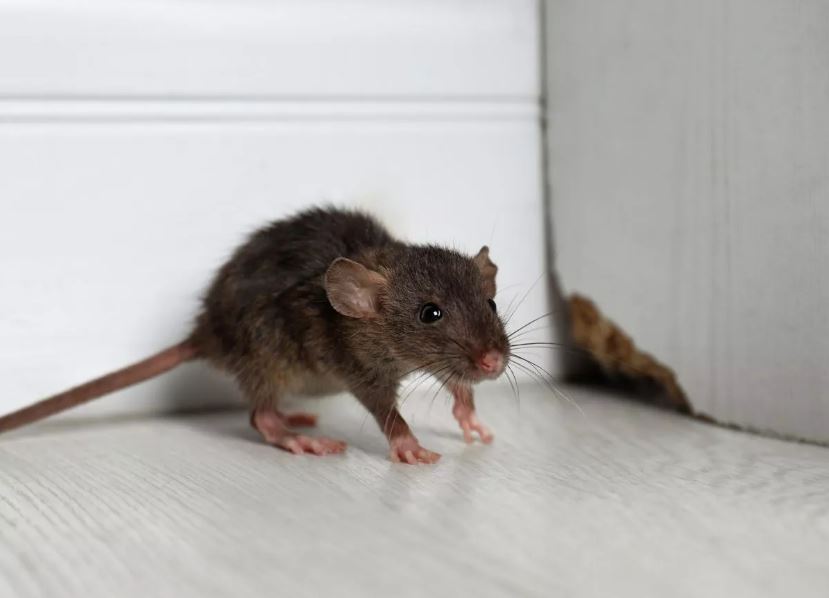
Having seen some of the damage caused by rodents, I am certain you don’t want them to have them around your home. Since rodents stay in the shadows, how do you tell they are in your home?
Fortunately, several signs show you have a rodent in your home. Once you notice any of these signs, you can tell your home is infested by rodents.
Here are some of the most common signs of rodent infestation:
1. Droppings
Obviously, the most common signs of rodent infestation are their droppings. Rat droppings are not too large (about half an inch long) and are typically black or dark brown.
Conversely, mouse droppings are smaller and are shaped like a grain of rice. Rodent droppings can be found on countertops, cupboards, and close to nesting areas and food sources.
2. Gnaw Marks
Rodents have razor-sharp teeth that they use to bite and tear anything. Most rodents, including capybaras have ever-growing teeth that can leave deep holes and cause damage to personal property.
Rats and mice can damage various materials and household items by gnawing on them. Checking chew marks on doors, wood, baseboards, wires, plastic, and other objects can tell if there are rodents in your home.
As mentioned, be sure to check for damaged electrical wires and if detected on time, serious fire hazards and fatal accidents can be avoided.
3. Unpleasant Odors
Rodents leave a strong, musty smell in the areas they occupy. These offensive, musty odours come from their defecation and urine as well as the decaying carcasses of dead rodents.
If you have decided to eliminate rats and mice by getting a poison or trap, be ready to face the smell of their decaying bodies.
4. Tiny Holes and Openings
Rats and mice can gain entry into your apartment by creating small, tiny openings. These openings don’t have to be too big, they can be small enough for them to squeeze themselves in and out of your home.
Check for cracks and holes in floors, windows, holes, foundations, and other potential entry points.
5. Nesting Materials
Rodents such as rats and mice tend to build nets from a variety of materials such as fabric, insulation, and shredded paper. These nests are found in hidden areas such as behind appliances and attics.
If you have torn paper or fabric in unusual places like your drawers, cupboards, wardrobes, or behind the appliances in your living room, it’s a sign of rodent infestation.
6. Scratching Sounds and Noises
Rodents are mostly active at night. They scurry around when you are asleep and their presence can be heard by their gnawing, scratching, or squeaking.
If you hear strange scratching sounds under your bed or in your walls and ceilings, this could be a sign of rodents in your home.
7. Fever
Rats are carriers of many diseases, which can be passed through contact with their waste or bodily fluids. Lassa fever is one of the most common illnesses transmitted by rats.
Rash, fever, and joint pain and some of the common symptoms of rat bite fever. If any member of your household displays any of the symptoms, be sure to seek help or medical attention quickly.
8. Rat Tracks and Marks
Rats and mice can leave marks on the way, showing how they travel and move around your home.
If you are observant, you may notice rodent tracks across your home. Dusty or dusty surfaces can reveal rodent tracks and footprints, showing their movement. These rodents can leave greasy, dark marks on various surfaces, including walls, countertops, and baseboards.
9. Fire Hazards
If you notice chewed or damaged electrical wires, it’s certain there are rodents in your home. As rats gnaw your wires and cables, they create bigger trouble for you in the long run as this can cause power outages or electrical fires.
Getting acquainted with these signs will help you know how best to handle the issue of rodent infestation and safeguard your home. Ideally, you can lessen the spread of diseases and minimize the dangers by early detection and intervention.
How Do Rats and Mice Enter The Home
Rats and mice are opportunists and have different entry points they can use to enter your home. As stated, rodent infestation can be reduced or prevented by sealing the entry points.
That said, these are some of the surest ways rodents use to get into your home:
1. Open Doors and Windows
This is perhaps, the most common entry point for rats and mice. Rodents such as mice and rats are great climbers and can climb trees, walls, and various surfaces to access open windows and doors.
Sometimes, these rodents are attracted to your home by a strong scent of food. If you have pet doors in your home, shutting them when not in use will prevent rodents from using them to gain entry into your apartment.
Additionally, constructing a special rodent-proof cover on the pet door will prevent rats and mice from using them to enter your home.
2. Roof and Attic
Rats are skillful climbers and can access your roof when they can. If you hear scurrying sounds in your ceiling, you can tell there is a rat there. Once the rodent gets to your ceiling, it begins searching for vents or creating openings to access your attic or living area.
3. Holes and Cracks
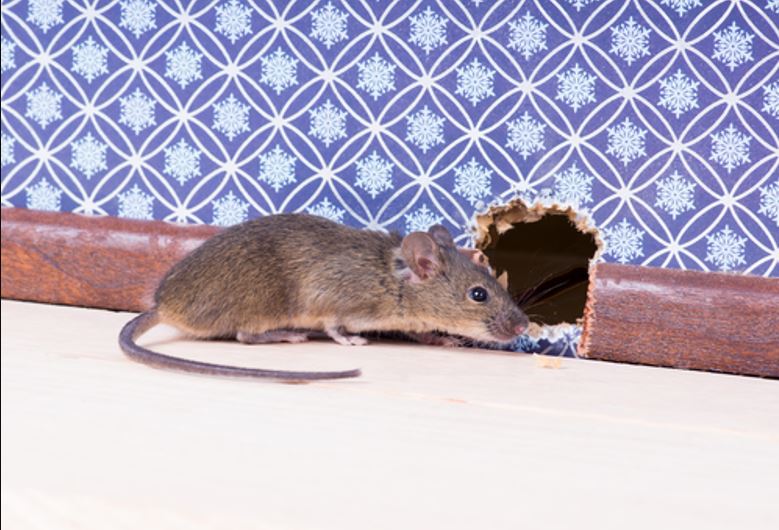
Rats and mice can easily access your space through small openings such as cracks and holes. As sad as it is, the holes do not need to be large for their size as they can squeeze themselves through small holes in ceilings, floors, and walls.
Once rats find small holes or cracks in your home, they try to squeeze themselves or enlarge the opening. They can also gain entry into your home through utility lines, vents, and pipes.
4. Drainage and Sewer Systems
Surprisingly, rats and mice can enter your home through drainage and sewage systems. Their preference to stay in drainage channels, gutters, dustbins, and other dirty places proves this assertion.
These creatures are excellent climbers and can climb up pipes or find holes in the sewer lines, which they use to enter your home. If your house doesn’t feature modern plumbing systems or if the pipeline facilities aren’t well-maintained, rats and mice can capitalize on it and enter your apartment.
If you want to stop rats and mice from accessing your apartment, start by looking out for potential entry points. Look out for holes in floors, ceilings, walls, doors, vents, and pipes and fix them properly. Also, doors and windows should be tightly closed when not in use.
Conclusion
Never downplay the dangers and threats of rodents because they can cause serious damage to your home. Rats and mice can unleash mayhem on your property, causing you to spend thousands of dollars on repairs and maintenance.
Apart from causing physical damage to your home, office, or property, they can threaten the health, safety, and well-being of your household.
Therefore, it is important to take action by following the preventive measures in this guide. Acting quickly and rightly can protect you and your family, your guests, and your home in general.
Keeping rodents away from your home ensures a safe, healthy, and habitable living environment. If you are struggling with rodent problems and can’t find an effective way to keep them out, consider contacting a professional pest control service in your locality.

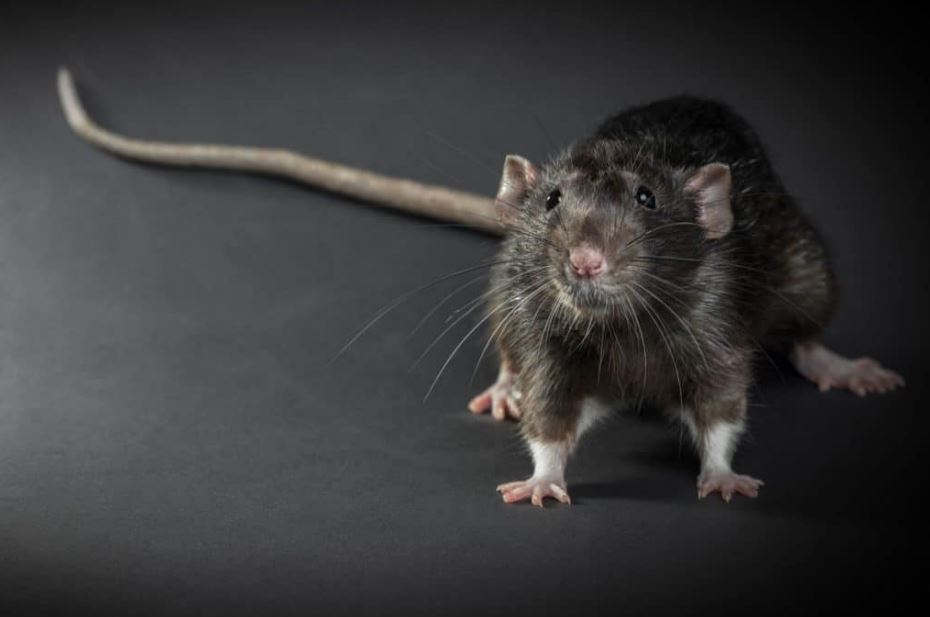


![Capybara Meat And Its Culinary Uses - [Every You Should Know] Capybara Meat & Culinary Uses](https://capybaratips.com/wp-content/uploads/2023/03/Capybara-meat-250x200.webp)

![Where Can I Buy a Capybara Near Me? - [Recommended] Where Can I Buy a Capybara Near Me](https://capybaratips.com/wp-content/uploads/2023/03/Near-Me-250x200.webp)
![How Big Should a Capybara Enclosure Be? - [Sizes & Design] How Big Should a Capybara Enclosure Be](https://capybaratips.com/wp-content/uploads/2023/03/Capy-Enclosure-250x200.webp)
